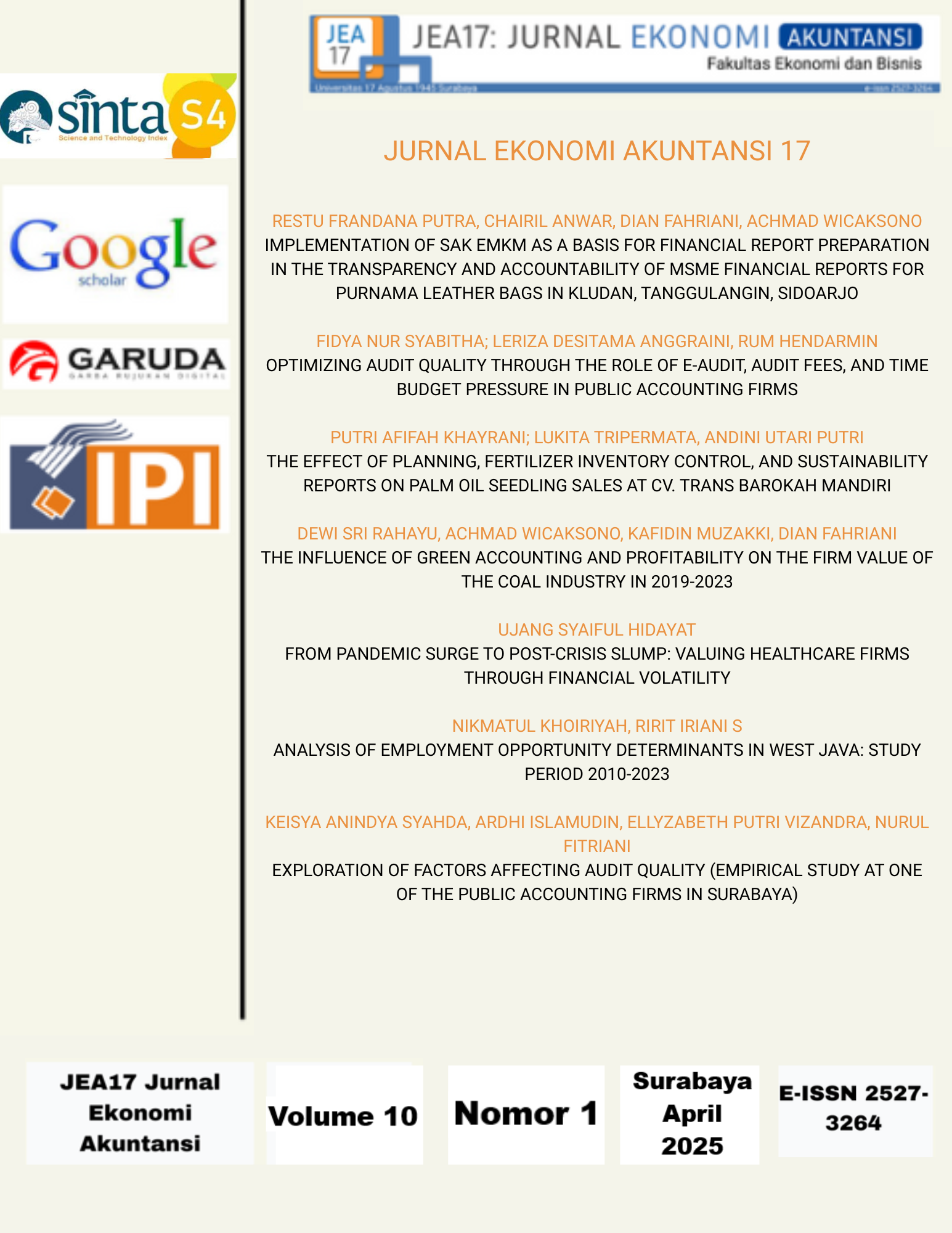OPTIMIZING AUDIT QUALITY THROUGH THE ROLE OF E-AUDIT, AUDIT FEES, AND TIME BUDGET PRESSURE IN PUBLIC ACCOUNTING FIRMS
DOI:
https://doi.org/10.30996/jea17.v10i1.13039Abstract
The advancement of technology in the auditing field has driven Public Accounting Firms (KAP) to adopt e-audit to enhance efficiency and accuracy in the audit process. Additionally, audit fees and time budget pressure are considered factors that may influence audit quality. However, the extent to which these factors impact audit quality remains a topic of debate. Therefore, this study aims to analyze the effect of e-audit, audit fees, and time budget pressure on audit quality in Public Accounting Firms. This study employs a quantitative method with data collected through questionnaires distributed to auditors in various Public Accounting Firms. The sample was selected using purposive sampling from 100 respondents, with criteria set by the author based on audit practice. The data was analyzed using Structural Equation Modeling (SEM) with SmartPLS version 4 to comprehensively examine the relationships between variables. The findings indicate that e-audit and time budget pressure have a positive and significant impact on audit quality, while audit fees do not have a significant effect. These results suggest that implementing audit technology enhances auditors' effectiveness, while well-managed time pressure improves productivity without compromising audit quality. Based on these findings, Public Accounting Firms are advised to optimize the use of e-audit and implement better time management strategies to maintain audit quality in dynamic work conditions
Downloads
Downloads
Published
Issue
Section
License
Authors whose manuscript is published will approve the following provisions:
- The right to publication of all journal material published on the JEA17: Jurnal Ekonomi Akuntansi website is held by the editorial board with the author's knowledge (moral rights remain the property of the author).
- The formal legal provisions for access to digital articles of this electronic journal are subject to the terms of the Creative Commons Attribution-ShareAlike (CC BY-SA) license, which means JEA17: Jurnal Ekonomi Akuntansi reserves the right to store, modify the format, administer in the database, maintain and publish articles without requesting permission from the Author as long as it keeps the Author's name as the owner of Copyright.
- Printed and electronically published manuscripts are open access for educational, research, and library purposes. In addition to these objectives, the editorial board shall not be liable for violations of copyright law.











